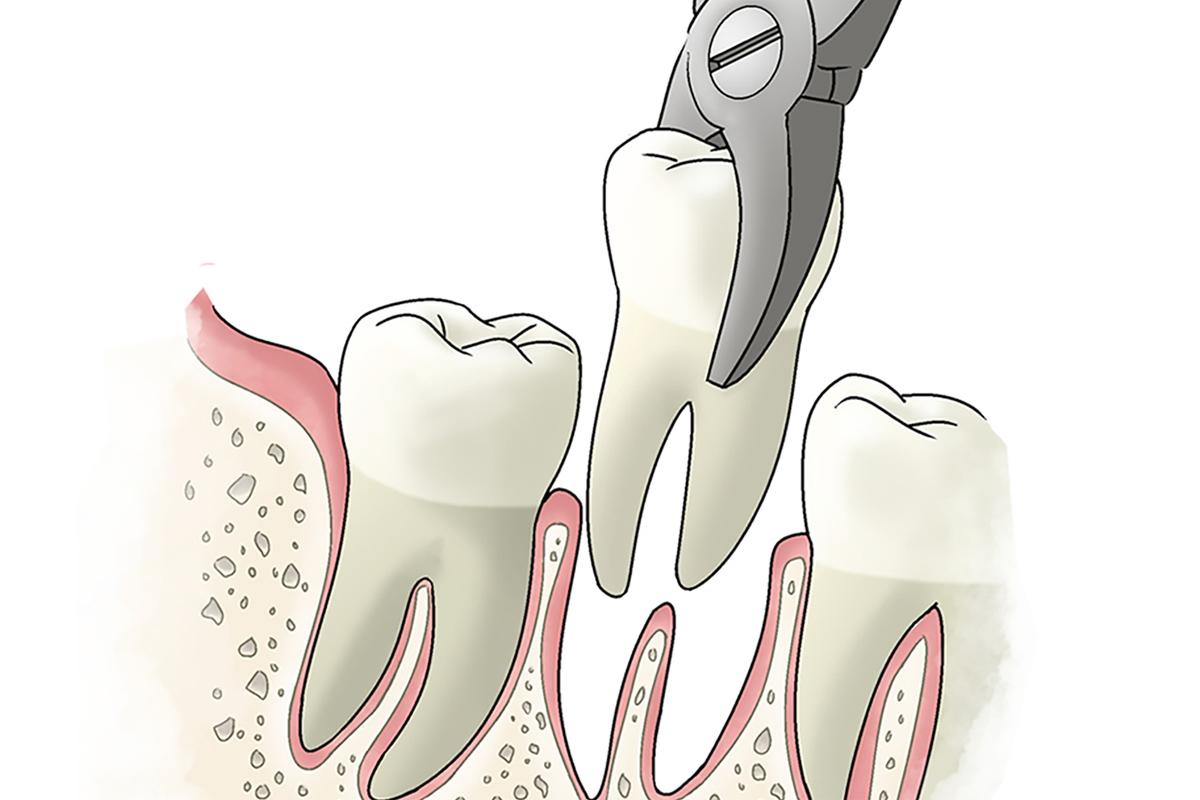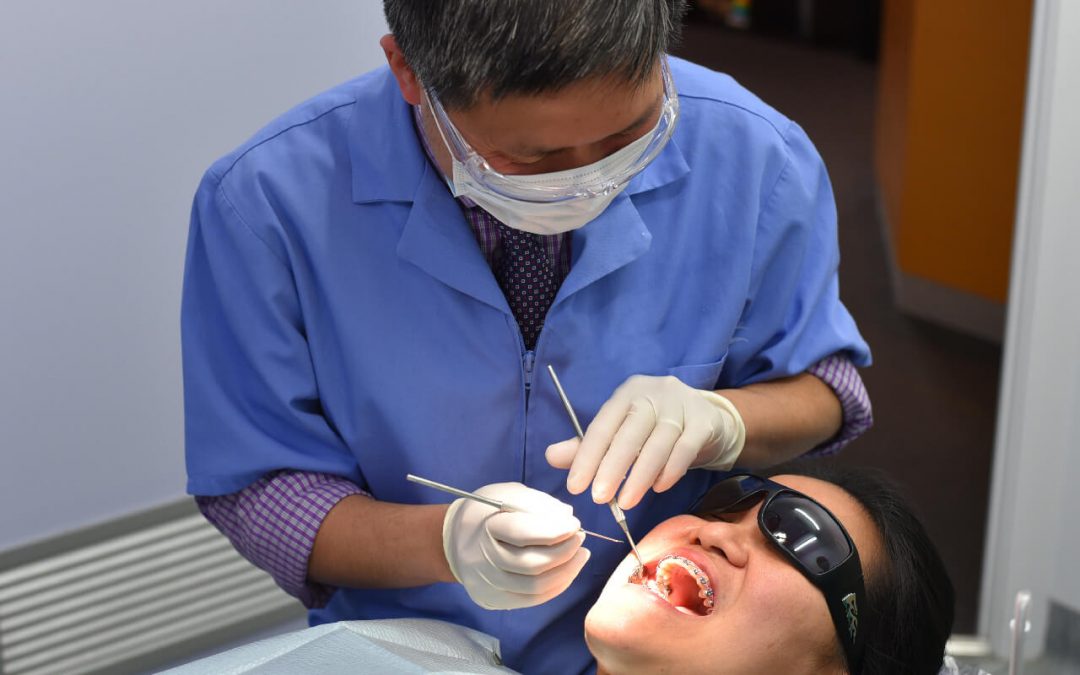Tooth extraction is the removal of a tooth from its socket in the bone.
If a tooth has been broken or damaged by decay, a dentist will try to fix it with a filling, crown or other treatment. However, sometimes, there’s too much damage for the tooth to be repaired. In this case, the tooth will need to be extracted. A very loose tooth usually requires extraction if it can’t be saved, even with bone replacement surgery.
It has been known that permanent teeth were meant to last a lifetime, however there are a number of reasons why tooth extraction may come into play. A very common reason involves a tooth too badly damaged either from trauma or decay, to be repaired. Other reasons may also include:

1. A crowded mouth:
Most times, dentists pull teeth to prepare the mouth for orthodontia. The goal of this orthodontia is to align the teeth as much as possible, which may not be possible if your teeth are too large for your mouth. In the same manner, if a tooth cannot break through the gum because there is not enough room in the mouth for it, your dentist may recommend pulling it.
2. Infection:
If tooth decay or damage extends to the pulp, bacteria in the mouth can enter it leading to infection. The good news is that often times this can be corrected with root canal therapy. However if the infection is very severe in that antibiotics or root canal therapy do not cure it, then extraction may be needed to prevent the spread of infection.
Here are other reasons:
1. Some people may have extra teeth which block other teeth from coming in.
2. Sometimes baby teeth don’t fall out in time to allow the permanent teeth to come in.
3. People who use braces may need some teeth to be extracted to create room for the teeth that are being moved into place.
4. People receiving radiation to the head and neck may need to have teeth in the field of radiation extracted.
5. People receiving cancer drugs may develop infected teeth because these drugs weaken the immune system. Infected teeth may need to be extracted.
6. Some teeth may need to be extracted if they could become a source of infection after an organ transplant. People with organ transplants have a high risk of infection because they must take drugs that decrease or suppress the immune system.
7. Wisdom teeth, also called third molars, are often extracted either before or after they come in. They commonly come in during the late teens or early 20s. They need to be removed if they are decayed, cause pain or have a cyst or infection. These teeth often get stuck in the jaw and do not come in. This can irritate the gum, causing pain and swelling. In this case, the tooth must be removed. If you need all four wisdom teeth removed, they are usually taken out at the same time.
Make an Appointment Today!
NoFrills Dental @ Marina Square
6 Raffles Boulevard,
Marina Square,
#B1-11
Singapore 039594
T: +65 6227 8885
E: marinasquare@nofrillsdental.com.sg
NoFrills Dental @ Suntec City
3 Temasek Boulevard
Suntec City (North Wing)
#03-317
Singapore 038983
Call Us Today
+65 9007 1085


































